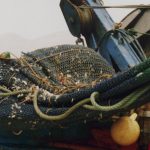The Scottish Fishermen’s Federation has unveiled its mini-manifesto for the forthcoming General Election, highlighting the main measures it would like the next Government to support.
Bertie Armstrong, SFF chief executive said: “Commercial fishing may not be the first policy priority in the heads of the party leaders, but it’s certainly first in the minds of those voters who operate the industry in the coastal communities of Scotland.
“Scotland holds the bulk of the UK fishing industry and it plays a most important role in the economy of the coastal communities, some of which are economically fragile. We have a wonderful renewable food source, which is harvested by an industry hungry to demonstrate its commitment to a sustainable future. We call on the current and aspiring Westminster representatives of Scotland to give us their support.”
The measures the SFF would like the main political parties to support are:
Recognise that sustainable commercial fishing has a future and act accordingly. Food security and the plain common sense of local primary food production spring immediately to mind. The industry will innovate, modify itself and fight for that future, but politicians must always lend their full support.
Take a properly balanced view of the process of marine planning that is about to become a reality. The two big sectors – super-economic oil & gas and the emergent renewable energy sector – must not blind politicians to the importance of fishing, which is a centuries old industry that is sustainable and upon which many coastal communities in Scotland depend.
Similarly, it is vital that during the planning and implementation process for Marine Protected Areas that the interests of fishing are not superseded by sometimes unrealistic pressure from the environmental lobby. Fishing and marine conservation can and will go hand-in-hand if a commonsense approach is adopted.
To vigorously press the EC during the current reform process of the Common Fisheries Policy for a new decentralised policy, where there is devolved control that allows Government and fishermen to work together to produce regional fisheries management policies that will work – centralised micro-management has failed us.
To recognise the importance that Scottish caught seafood plays in national food policy and to highlight the health benefits it plays in our national diet.
Mr Armstrong said: “In recent years Scottish fishermen, working with Government and scientists, have been at the forefront of developing new initiatives to ensure the sustainable harvesting of the seafood found in the seas around our coasts. In meeting the difficult challenges of recovery from a recession it is essential that politicians from all parties give the industry their support, recognise our commitment to sustainability and help ensure a bright economic future for fishing.”








